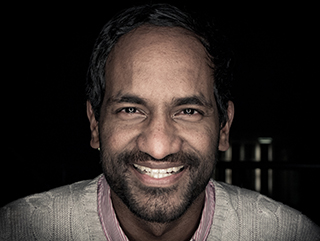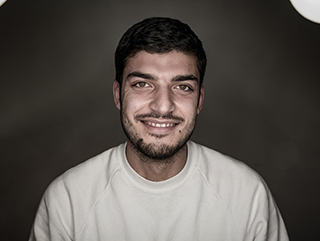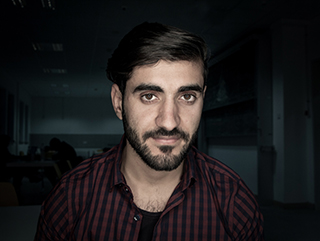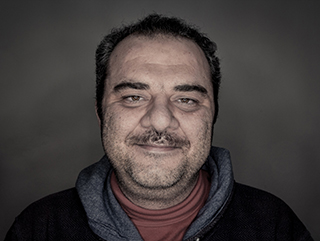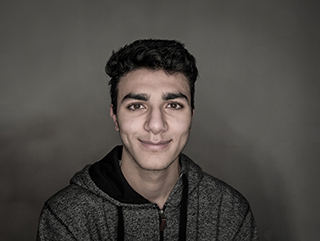Traudl
born in Czechoslovakia, living in GermanyOne time, someone knocked at the door at night. When my father wanted to open, a Russian man, smeared with blood, had already climbed through the window into our bedroom. “Where is woman? Where is woman?” he asked and looked at me. But I was just ten years old and very skinny and small. So, he luckily left. My mother had already escaped through the back door and hid outside.
One time, my mother didn’t obey a Czech man. That’s why he accused us of having weapons in our house, which equalled a death sentence. My father could speak Czech well, because back then it was common in the Karkonosze Mountains to exchange children between Czech and German families for a while so they could learn the language of the others. That rescued us, because a befriended Czech warned my father and we could flee.
When we were at the border to Germany, we had to cross it illegally at night. In the first night, we got lost and walked in circles. The next night, we crossed the Wondreb river. My mother carried us children on her back through the water. On the other side, everyone ran up the meadow into the forest. But they forgot me on the riverbank! I was soaked and tried to put on my socks, but I couldn’t get them over my wet feet! Those are memories that stay with you your whole life. Then I ran after them, scared to death.
Already as a young girl, I couldn’t sit still. I always went to the farmers and asked them if I could help them with haymaking or so. I always had to weed our vegetable garden. When I finally finished at the back of the garden, I had to start from the front again because the weed grew so fast. I’ve always had a lot of work, but that’s home; those experiences, the environment, my friends, school, the place where we lived, when we picked blue berries. I just had to go out of the garden, cross the fields and I was in the forest. The landscapes – that is home. Here it is homelike, but home is where one loved to be as a child. The feeling in here, in my chest, that is home.
I would say the highest good one has is freedom. Being able to shape your own destiny. When there is war for example, you cannot decide what you want. During the “Third Reich” we weren’t free. We had to keep our mouth shut, we had to march lock-step. Now I don’t have to keep my mouth shut. Well, to some extend I do, because one needs to integrate to a certain extend. But that is not as painful as it is under dictatorship. We are in a democracy now, but many people do not use it well, because they have never experienced it differently. They don’t vote, they don’t participate, they just think of themselves and don’t care about anything else. Only when it comes to restrictions, then they cry out! Freedom is a duty, too; the duty to be a serving link for society. It starts with neighbourly help and respect for my surroundings. One cannot just take, but one also has to give.
On a farm, everyone has to help together in order to sustain it. It’s the same on a bigger scale: We all have to help together. But it mustn’t be, that some people think, they could just rely on the government and on the hardworking ones. I have worked way too much in my life to accept that! And I was happy when I was working!
It would be wonderful, if everyone could decide, where he or she wants his or her home to be. That would incorporate established frameworks that enable people to live together peacefully, no war against others, no jealousy. Whoever wants to leave voluntarily can do that of course, but without bothering or troubling others. That would result in a peaceful cooperation of people.
Everyone should be happy and content with his language, his country, his cultural background. I think, if every people would make a claim on this – for instance the French would be content to be French, the Italians would be happy to be Italian and me I would be glad to be German – in mutual understanding that the other one thinks the same way I do, then everyone would live together peacefully.
Explore more stories:

